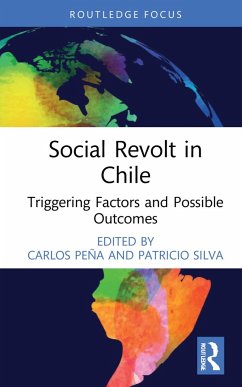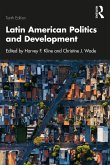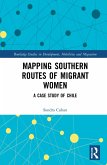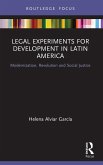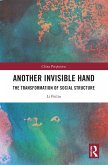This book investigates why Chile suddenly confronted a violent social revolt in October 2019, after almost thirty years of political stability, during which time the country was broadly regarded as Latin America's most successful nation.
Since democratic restoration in 1990, Chile's relatively high levels of political stability, increasing prosperity and social modernisation have stood out in a region shaken by political convulsion and economic malaise. In early October 2019, President Sebastián Piñera confidently claimed that Chile represented a true 'oasis' of political stability and economic vitality in Latin America. However, just weeks later, the announcement of a small increase in the price of Santiago's underground transport system unleashed an unprecedented wave of violent anti-government protests in the country, with protestors ultimately demanding Piñera's resignation and the end of neoliberalism and the 1980 Constitution, among many other demands. This book analyses the causes of Chile's socio-political upheaval, arguing that the fast social and economic modernisation produced by the neoliberal system led to a series of destabilising socio-political processes in the country.
At a time when much analysis of the October uprising tends to be superficial or polarised on ideological grounds, this book provides a much-needed sociological and institutional analysis of the crisis. It will be an important read for scholars of Latin American politics and development, as well as those with a broader interest in state legitimacy, social movements and political contestation against neoliberalism.
Since democratic restoration in 1990, Chile's relatively high levels of political stability, increasing prosperity and social modernisation have stood out in a region shaken by political convulsion and economic malaise. In early October 2019, President Sebastián Piñera confidently claimed that Chile represented a true 'oasis' of political stability and economic vitality in Latin America. However, just weeks later, the announcement of a small increase in the price of Santiago's underground transport system unleashed an unprecedented wave of violent anti-government protests in the country, with protestors ultimately demanding Piñera's resignation and the end of neoliberalism and the 1980 Constitution, among many other demands. This book analyses the causes of Chile's socio-political upheaval, arguing that the fast social and economic modernisation produced by the neoliberal system led to a series of destabilising socio-political processes in the country.
At a time when much analysis of the October uprising tends to be superficial or polarised on ideological grounds, this book provides a much-needed sociological and institutional analysis of the crisis. It will be an important read for scholars of Latin American politics and development, as well as those with a broader interest in state legitimacy, social movements and political contestation against neoliberalism.
"Many recent accounts of Chile's October 2019 rebellion simplistically trace its origins to a rejection of the legacy of the Pinochet dictatorship's neoliberal economic model. This outstanding volume brings together a collection of stellar scholars to provide a more nuanced account of the origins of the revolt, uncovering the complex interaction between authoritarian legacies, social trauma, and dashed expectations. It is a definitive work for anyone seeking to understand Chile's past, its current political moment and its constitutional path forward." - Peter M. Siavelis, Professor of Political Science and International Affairs, Wake Forest University, USA
"This fine collection proposes a suggestive and persuasive combination of factors for understanding the 'social uprising' in Chile from October 2019. Distinguished scholars consider the historical, generational, social, and political dynamics behind a remarkable and unexpected breakdown in the 30-year post-dictatorial consensus. Deep knowledge, open-minded analysis, and the keen desire to review prior understandings of Chilean 'modernisation' evident in these chapters will greatly enrich the continuing debate over the qualities of public life and culture in the country." - James Dunkerley, Professor of Politics at Queen Mary, University of London, UK
"Solving the Chilean puzzle of stability and plenty has been something of a mini industry for over a century. The events of October 18th 2019 made contemporary Chile even more of a paradox: thirty years of success followed by a popular demand for drastic change. This book represents our best efforts to understand both the long term and immediate causes of the explosion and to begin re-imagining a future Chile." - Miguel A. Centeno, Musgrave Professor of Sociology, Princeton University, USA
"This fine collection proposes a suggestive and persuasive combination of factors for understanding the 'social uprising' in Chile from October 2019. Distinguished scholars consider the historical, generational, social, and political dynamics behind a remarkable and unexpected breakdown in the 30-year post-dictatorial consensus. Deep knowledge, open-minded analysis, and the keen desire to review prior understandings of Chilean 'modernisation' evident in these chapters will greatly enrich the continuing debate over the qualities of public life and culture in the country." - James Dunkerley, Professor of Politics at Queen Mary, University of London, UK
"Solving the Chilean puzzle of stability and plenty has been something of a mini industry for over a century. The events of October 18th 2019 made contemporary Chile even more of a paradox: thirty years of success followed by a popular demand for drastic change. This book represents our best efforts to understand both the long term and immediate causes of the explosion and to begin re-imagining a future Chile." - Miguel A. Centeno, Musgrave Professor of Sociology, Princeton University, USA

